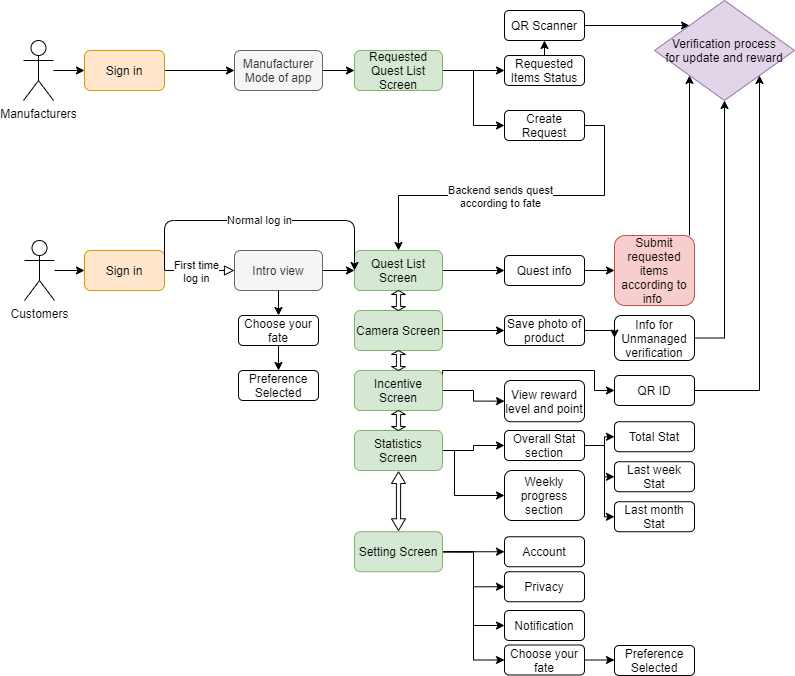Use Cases
Our persona above shows the story of the users. A flowchart presents overall scheme.

Recyclone
Requirements
Avanade is our client. It is a global professional sevices company providing IT consulting and services focused on the Microsoft platform. Avanade consults many companies including manufacturers, and among them, there are times when it needs to cover issues related to supply of recyclable products. To resolve supply issue, we decided to create efficient route of recyclable delivery by connecting between manufacturer and individuals. Furthermore, this was expanded to provide the route for charity and donation such as edible food or reusable products.
The first aim of our project is to provide mobile app which gamify the process of recycling so that individuals are motivated to recycle. Customers of our app will get instant compensation though our incentive system so that they can be motivated well. The second aim is to provide path between individuals (customers) and manufacturers to deliver accurate recyclable products through mobile app. The third aim is to enable above route for other reusable products such as edible food or second handed t-shirts. To summarise, our goal is to motivate individuals to send accurate recyclables (or donation) requested by manufacturers (or charities) in their daily lives.
The first quest we received was 'How might we deploy IoT and AI to improve recycling at a products end of use?'. The further meeting with client was required to know exact requirements we need to achieve. It took times to get the point of the topic as 'improving recycling' was too vague. Every time before the meeting, we brainstormed about our project and then we asked to client if that fits to his requirements. Our brainstorming was based on three main points requested from client.
1. Product of our project should be related to IoT such as web or mobile apps.
2. Our product needs to have some sort of AI model.
3. Our product needs to solve waste of recycling by helping manufacturers to get recyclables they need.
4. It would be better if our work had scalability.
Following list is used to achieve exact requirements..
- How are we applying AI in the context of this task?
- How are we applying IoT in the context of this task?
- Do client want people improvement? Or Company improvement?
- Who's our end user? Someone doing the recycling? Someone recovering the goods? Recycle plants?
- Are we meant to worry about how to get the goods to the manufacturer? So shall we make the client post or can we assume that there is a delivery service?
- Are we focusing on a manufacturer or we can make something that many manufacturers can use at the same time?
- How can we help manufacturers to use recycle goods?
- Should we improve manufacturer's capacity to use recyclable product?
- Can we expand our idea as long as we resolve recycling issue?
Our persona above shows the story of the users. A flowchart presents overall scheme.

created with
Website Builder Software .